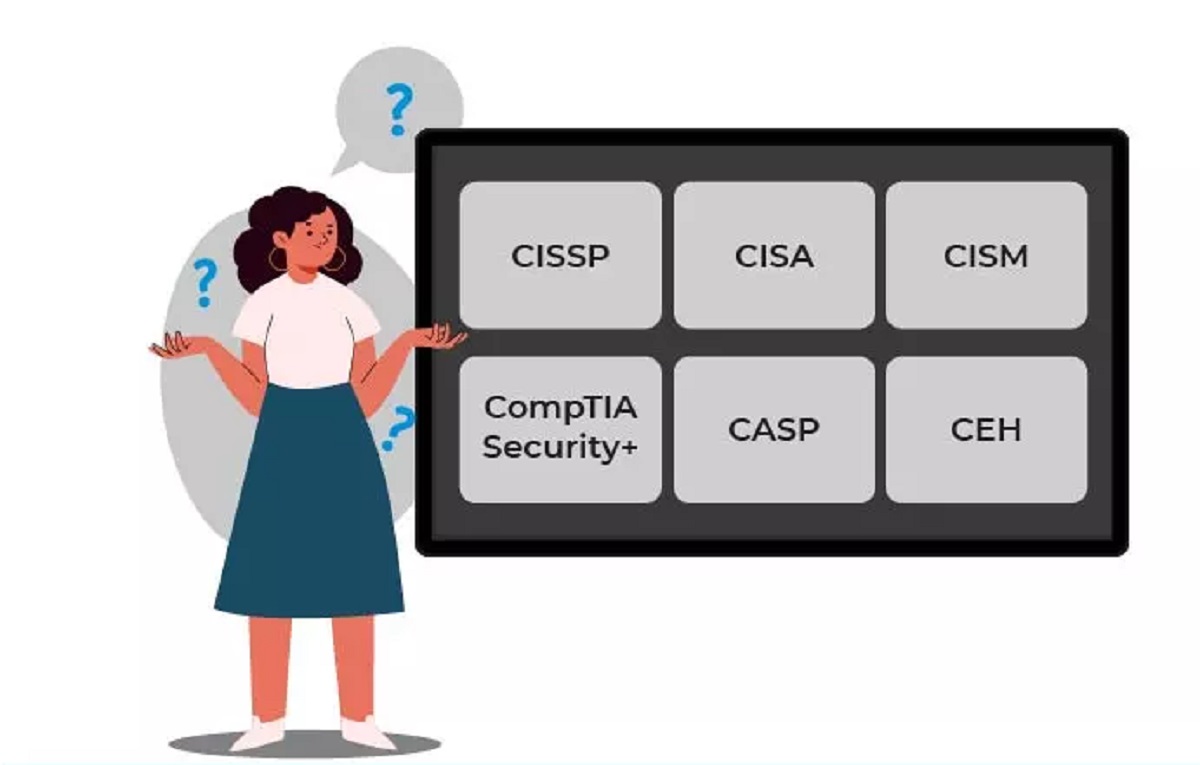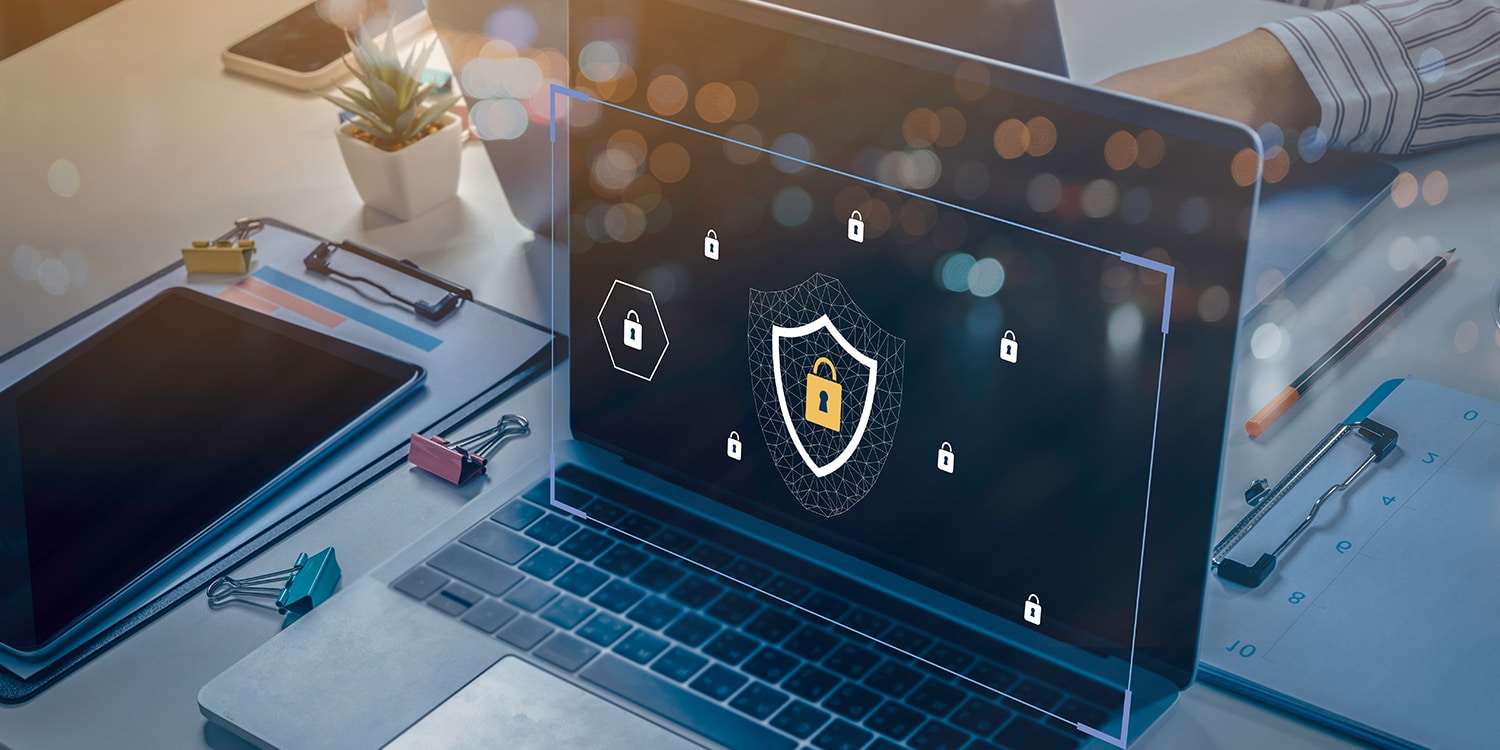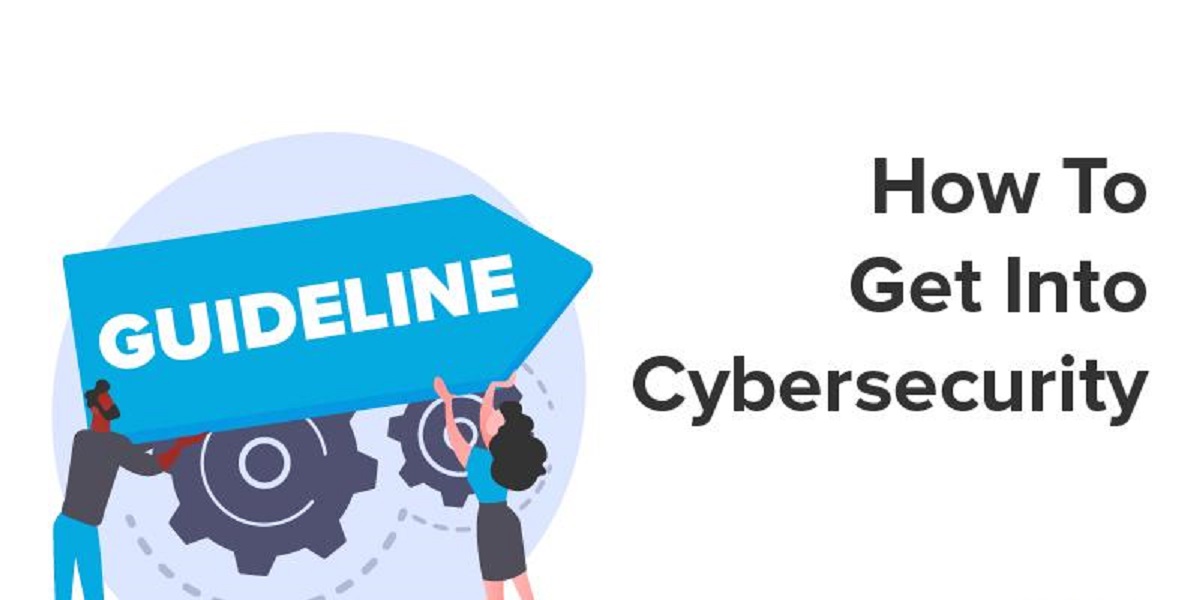Introduction
Welcome to the exciting world of cybersecurity! With the increasing prevalence of cyber threats and the ever-growing demand for skilled professionals, now is a great time to get into cybersecurity. Whether you have no prior experience or are looking to transition into this field, this guide will help you navigate the path to a rewarding career in cybersecurity.
Cybersecurity involves protecting computer systems, networks, and data from unauthorized access, theft, and damage. It plays a vital role in safeguarding organizations, individuals, and even governments from cybercrimes. As technology continues to advance, the need for cybersecurity experts continues to rise.
While getting started in cybersecurity may seem daunting, it is important to remember that it is a dynamic and diverse field. There are various roles, from ethical hacking and incident response to network security and risk management, offering opportunities for professionals with different skill sets and interests.
In this guide, we will walk you through the steps to break into the cybersecurity industry, even if you have no previous experience. We will explore how to build a strong foundation, the importance of certifications, gaining practical experience, networking, creating a security-focused resume, job search strategies, interview preparation, continuing education, and professional development.
By following these steps, you will be on your way to entering the thrilling world of cybersecurity and contributing to the protection of critical information in our increasingly digital society. So, let’s get started on this transformative journey together!
Understanding Cybersecurity
Cybersecurity is the practice of protecting electronic systems, networks, and data from potential threats and unauthorized access. It encompasses a wide range of techniques and practices to safeguard information, maintain privacy, and prevent cyberattacks.
In today’s highly interconnected world, the importance of cybersecurity cannot be overstated. As technology advances, so do the methods employed by hackers and cybercriminals. From data breaches and ransomware attacks to social engineering and phishing scams, organizations and individuals are constantly at risk.
Understanding the key components of cybersecurity is essential for anyone looking to enter the field. Here are some important concepts to grasp:
- Threats: Cyber threats refer to potential dangers that can compromise the security of computer systems and networks. These threats can be caused by various factors, such as malware, hackers, or even unintentional human errors. It is crucial to be aware of the different types of threats and their impact.
- Risk assessment: Risk assessment involves identifying, evaluating, and prioritizing potential risks and vulnerabilities. It helps organizations understand their exposure to threats and enables them to implement safeguards accordingly.
- Security policies and procedures: A robust security framework requires the development and implementation of comprehensive security policies and procedures. These guidelines establish the rules and best practices for maintaining a secure environment.
- Firewalls and encryption: Firewalls act as a barrier between internal networks and external threats, monitoring and filtering incoming and outgoing network traffic. Encryption ensures that sensitive data remains unreadable to unauthorized individuals, using algorithms to convert the data into a coded format.
- Incident response: Incident response refers to the process of addressing and managing cybersecurity incidents. This involves analyzing the scope and impact of an incident, mitigating the damage, and implementing preventive measures to prevent future occurrences.
Having a solid understanding of these fundamental concepts lays the groundwork for a successful cybersecurity career. As you delve deeper into the field, you will encounter additional concepts and practices that are specific to different domains, such as network security, application security, and cloud security.
Remember, cybersecurity is an ever-evolving field, necessitating continuous learning and adaptation. By staying informed about the latest technologies, methodologies, and threat landscapes, you will be well-equipped to face the challenges and make a positive impact in the realm of cybersecurity.
Building a Foundation
Building a strong foundation is crucial for establishing a successful career in cybersecurity. While a degree in computer science or a related field can provide a solid groundwork, it is not the only path to enter the industry. Here are some steps you can take to build a strong foundation:
- Understand the fundamentals: Start by familiarizing yourself with the basics of computer systems, networks, and programming languages. Knowledge of operating systems, such as Windows and Linux, and concepts like TCP/IP, DNS, and HTTP will be valuable in understanding the underlying infrastructure of cybersecurity.
- Learn about cybersecurity principles: Gain a comprehensive understanding of the principles and concepts that form the core of cybersecurity. This includes topics such as network security, cryptography, ethical hacking, risk management, and compliance. Explore online resources, books, and tutorials to deepen your knowledge in these areas.
- Enroll in cybersecurity courses: Consider taking formal cybersecurity courses or pursuing certifications to enhance your knowledge and credibility. Look for reputable online platforms or institutions that offer courses specifically designed for beginners and those with no prior experience.
- Participate in cybersecurity competitions and challenges: Engage in cybersecurity competitions and challenges, such as Capture the Flag (CTF) competitions. These events provide hands-on experience and allow you to apply your knowledge in real-world scenarios. They also offer opportunities to network with professionals in the cybersecurity community.
- Join cybersecurity communities and forums: Connect with like-minded individuals by joining cybersecurity communities and forums. Participating in discussions, asking questions, and sharing knowledge will not only expand your network but also expose you to different perspectives and insights in the field.
- Stay updated with industry news and trends: Cybersecurity is a rapidly evolving field, with new threats and technologies emerging regularly. Stay abreast of the latest industry news, trends, and best practices by following cybersecurity blogs, podcasts, and attending webinars or conferences. This continuous learning will help you stay ahead in the ever-changing landscape of cybersecurity.
Remember, building a foundation in cybersecurity is an ongoing process. Cultivate a mindset of curiosity, a willingness to learn, and a passion for solving complex problems. Embrace opportunities to apply your knowledge and skills, whether through personal projects, volunteering, or internships. With dedication and continuous learning, you will be well-prepared to tackle the challenges and excel in the cybersecurity field.
Cybersecurity Certifications
Cybersecurity certifications play a vital role in showcasing your expertise and validating your skills in specific areas of cybersecurity. They not only enhance your resume but also demonstrate your commitment to professional development and dedication to the field. Here are some popular cybersecurity certifications to consider:
- CompTIA Security+: A vendor-neutral certification that covers the foundational knowledge and skills required for entry-level cybersecurity positions. It validates your understanding of threat management, cryptography, network security, and more.
- Certified Ethical Hacker (CEH): This certification is ideal for those interested in ethical hacking and penetration testing. It equips you with the knowledge and tools to identify vulnerabilities in systems and networks and secure them effectively.
- Certified Information Systems Security Professional (CISSP): CISSP is a globally recognized certification that demonstrates your expertise in various domains of cybersecurity, including security and risk management, asset security, and cryptography. It is widely regarded as one of the most prestigious certifications in the field.
- Certified Information Security Manager (CISM): CISM is designed for information security managers and professionals involved in the governance and management of IT security systems. It focuses on risk management, incident response, and compliance.
- GIAC Security Essentials (GSEC): GSEC is an entry-level certification that validates your understanding of essential security concepts, tools, and best practices. It covers areas such as network security, access control, and cryptography.
- Offensive Security Certified Professional (OSCP): OSCP is an advanced certification that focuses on offensive security and penetration testing. It requires hands-on practical skills and real-world scenarios to pass the examination.
When choosing a certification, consider your career goals, the specific area of cybersecurity that interests you, and the requirements of potential employers. Research the industry demand for certifications and keep in mind that some certifications may require prerequisites or experience.
Additionally, keep in mind that certifications alone may not be sufficient. Practical experience in the form of internships, personal projects, or volunteering can provide valuable hands-on skills and make you more attractive to employers.
Remember that the cybersecurity field is constantly evolving, and it is crucial to stay updated with the latest industry trends and technologies. Continuing education, obtaining advanced certifications, and pursuing specialized training will help you stay ahead and continually enhance your cybersecurity knowledge and skills.
Gaining Practical Experience
Acquiring practical experience is essential to cement your knowledge and skills in cybersecurity. While certifications and theoretical knowledge provide a solid foundation, hands-on experience is invaluable in this field. Here are some ways to gain practical experience:
- Internships: Seek out internships or apprenticeships with cybersecurity firms or IT departments of organizations. Internships provide the opportunity to work alongside professionals in real-world settings, allowing you to apply your knowledge and gain practical skills.
- Personal Projects: Undertake personal projects to practice and showcase your skills. Set up a home lab or virtual environment to simulate real-world scenarios and conduct experiments. This hands-on experience will not only improve your technical abilities but demonstrate your initiative and problem-solving capabilities to potential employers.
- Capture the Flag (CTF) Challenges: Participate in online CTF challenges or competitions. These simulated cybersecurity challenges help you develop critical thinking, problem-solving, and analytical skills while applying your knowledge in a dynamic environment. CTF challenges also provide an opportunity to network with other cybersecurity professionals.
- Volunteer Work: Consider volunteering for non-profit organizations or community initiatives that require cybersecurity assistance. This can involve tasks such as assessing their IT infrastructure for vulnerabilities, educating users on best practices, or assisting with incident response. Volunteering not only gives you practical experience but also demonstrates your commitment to helping others and making a positive impact.
- Mentorship and Shadowing: Connect with professionals in the cybersecurity field and seek mentorship opportunities. Shadowing experienced practitioners allows you to observe their workflow, gain insights into their approaches, and learn from their expertise. Mentors can provide guidance, share industry knowledge, and help you navigate your career path.
It is important to note that gaining practical experience takes time and effort. Embrace every opportunity to apply your knowledge, learn from mistakes, and continually improve. Document your practical projects and experiences, as they can be valuable additions to your resume and serve as talking points during interviews.
Lastly, keep up with the latest developments in the cybersecurity field. Stay informed about emerging technologies, new threats, and industry trends. Actively engage in online communities, forums, and social media platforms to connect with professionals and experts in the cybersecurity industry.
Remember, practical experience combined with theoretical knowledge will significantly enhance your chances of securing a job in cybersecurity. Continuously seek to expand your practical experience, refine your skills, and stay adaptable in this ever-evolving field.
Networking and Building Connections
In the cybersecurity industry, networking and building connections are essential for career growth and opportunities. Developing a strong professional network can open doors to job prospects, mentorships, and collaborations. Here are some tips to enhance your networking efforts:
- Join Professional Associations: Become a member of cybersecurity-focused professional associations such as the Information Systems Security Association (ISSA) or the International Information System Security Certification Consortium (ISC²). Attend their events, seminars, and conferences to meet and connect with industry professionals.
- Attend Meetups and Conferences: Participate in local cybersecurity meetups and conferences. These events provide an excellent opportunity to meet professionals from various domains within cybersecurity, share knowledge, and gain insights into the latest trends in the industry.
- Engage in Online Communities: Join cybersecurity forums, discussion boards, and social media groups to engage with like-minded professionals. Contribute to discussions, ask questions, and share your expertise. Networking online can be a valuable way to connect with experts in the field and expand your knowledge.
- Participate in Hackathons and Capture the Flag (CTF) Competitions: Engage in hackathons, CTF competitions, and other cybersecurity events. These activities provide opportunities to work in teams, solve challenges, and showcase your skills. Networking with other participants and organizers can lead to collaboration and learning from others in the field.
- Connect with Alumni and Peers: Reach out to alumni from your educational institution or colleagues who are already working in the cybersecurity industry. They can provide valuable insights, advice, and potential job referrals. Attend alumni events or join professional networking platforms to connect with professionals in your field.
- Utilize LinkedIn: Create a professional LinkedIn profile and actively engage in the cybersecurity community. Connect with professionals, join relevant groups, and share insightful content. LinkedIn can serve as a powerful tool for establishing connections and showcasing your expertise to potential employers.
- Attend Webinars and Online Events: Participate in webinars and virtual events hosted by cybersecurity organizations. These events allow you to interact with industry experts, gain knowledge, and network with fellow attendees in a virtual setting.
Remember, building genuine relationships is more important than simply collecting contacts. Approach networking with a mindset of mutual learning and support. Offer assistance, share knowledge, and be willing to help others in the cybersecurity community.
Networking is a continuous effort, so regularly nurture your professional relationships. Keep in touch with your connections, attend relevant events, and actively contribute to the community. Your network can provide invaluable support, mentorship, and career opportunities throughout your cybersecurity journey.
Building a Security-focused Resume
A strong and well-crafted resume is crucial in landing a cybersecurity job. It serves as your first impression to potential employers and highlights your skills, qualifications, and experiences in the field. Here are some tips for building a security-focused resume:
- Start with a Strong Summary: Begin your resume with a concise and attention-grabbing summary statement that highlights your relevant experience, skills, and accomplishments in cybersecurity. Make it clear how you can contribute to the organization’s security goals.
- Highlight your Core Skills: Create a dedicated section to showcase your core cybersecurity skills. Include technical skills such as network security, vulnerability assessment, incident response, and knowledge of security tools and technologies. Also, emphasize essential soft skills like attention to detail, problem-solving, teamwork, and communication.
- Showcase Certifications and Training: List your relevant certifications prominently. Mention certifications such as CompTIA Security+, CISSP, CEH, or any other certifications you have acquired. Include details about training programs, workshops, or boot camps you have attended that are relevant to the cybersecurity field.
- Detail your Experience: Highlight your work experience, internships, or other relevant roles in the cybersecurity field. Focus on accomplishments, projects, and responsibilities that demonstrate your skills and contributions to the security of the organization. Use quantifiable results whenever possible to showcase the impact of your work.
- Showcase Technical Projects: Include a section where you can highlight any technical projects or personal initiatives related to cybersecurity. This could include penetration testing projects, vulnerability assessments, or any other hands-on projects that demonstrate your practical skills.
- Include Industry Keywords: Tailor your resume to the specific job you are applying for by using relevant industry keywords. Incorporate terms and phrases that are commonly used in cybersecurity job descriptions. This will help your resume stand out to hiring managers and applicant tracking systems.
- Mention Professional Affiliations and Engagements: Include any memberships or active participation in professional cybersecurity associations, forums, or communities. This demonstrates your commitment to staying updated in the field and your engagement with the cybersecurity community.
- Proofread and Format Professionally: Ensure your resume is error-free and properly formatted. Use a clean and professional layout, choose an easy-to-read font, and ensure consistent formatting throughout. Avoid excessive jargon and acronyms that may confuse or overwhelm the reader.
Remember, your resume should be tailored to each job application. Highlight the skills, experience, and qualifications that specifically align with the job requirements. Be concise, yet provide enough information to demonstrate your capabilities and potential value to the hiring organization.
Finally, always double-check the accuracy and relevance of the information on your resume. Keep it up to date with your latest certifications, projects, and experiences. A well-crafted security-focused resume will significantly increase your chances of standing out and securing a cybersecurity position.
Job Search Strategies
Searching for a job in the cybersecurity field requires a strategic approach to ensure your efforts are focused and yield fruitful results. Here are some strategies to help you navigate your job search:
- Define Your Goal: Clarify your career goals within the cybersecurity field. Determine the specific role or domain you want to pursue, such as network security, penetration testing, or incident response. This clarity will help you narrow down your search and target relevant opportunities.
- Research Companies: Conduct research on companies known for their focus on cybersecurity. Identify organizations that prioritize security and align with your values and career aspirations. Explore their websites, company culture, and job openings to find potential matches.
- Use Online Job Portals and Career Websites: Utilize online job portals and career websites specializing in cybersecurity, such as LinkedIn, Indeed, or CyberSecJobs.com. Set up job alerts to receive notifications for relevant positions and regularly search for new postings.
- Networking: Leverage your network and connections within the cybersecurity industry. Inform friends, colleagues, and mentors of your job search intentions. Attend industry events, join professional associations, and engage in online cybersecurity communities to expand your network and uncover hidden job opportunities.
- Customize Your Application: Tailor your application materials, including your resume and cover letter, to each specific job application. Highlight the relevant skills and experiences that directly align with the job requirements. This customization shows employers that you have taken the time to understand the role and are genuinely interested.
- Build an Online Presence: Develop a strong online presence through a professional LinkedIn profile and an up-to-date portfolio or personal website highlighting your cybersecurity skills and projects. Employers often review online profiles, so ensure your digital presence reflects your expertise and professionalism.
- Internships and Entry-Level Positions: Consider internships or entry-level positions that provide valuable hands-on experience and a pathway to a more senior role. These opportunities can offer a stepping stone to build your skills, gain practical experience, and expand your professional network.
- Prepare for Technical Interviews: Be prepared for technical interviews that assess your cybersecurity knowledge and problem-solving abilities. Stay updated on current industry trends, practice solving cybersecurity challenges, and be comfortable discussing your projects and experiences during the interview process.
- Continued Learning: Demonstrate a commitment to continuous learning and professional development. Pursue additional certifications, attend workshops or webinars, and keep up with the latest advancements in cybersecurity. This proactive mindset showcases your enthusiasm for the field.
Remember, the job search process may take time, so be patient and persistent. Treat each application and interaction as an opportunity for growth and learning. Stay positive, proactive, and open to exploring different avenues to find the right job in the cybersecurity field.
Interview Preparation
Interviews play a crucial role in securing a job in the cybersecurity field. Adequate preparation is essential to make a positive impression and showcase your skills and knowledge. Here are some tips to help you effectively prepare for your cybersecurity job interviews:
- Review the Job Description: Carefully read and understand the job description, including the required skills, responsibilities, and qualifications. Identify the key skills and experiences the employer is seeking, and prepare to discuss how your background aligns with their requirements.
- Research the Company: Thoroughly research the company’s background, mission, products, and services. Familiarize yourself with their cybersecurity initiatives and any recent security incidents or breaches they have faced. This knowledge will help you align your answers with their specific needs.
- Prepare Answers to Common Cybersecurity Questions: Anticipate and practice answers to common cybersecurity interview questions, such as those related to your technical skills, experience with specific security tools, or handling security incidents. Use the STAR method (situation, task, action, result) to structure your answers and highlight your achievements.
- Showcase Your Technical Knowledge: Be prepared to demonstrate your technical knowledge and problem-solving abilities through practical scenarios or challenges. Be ready to discuss your experience with specific security frameworks, protocols, or tools commonly used in the industry.
- Stay Updated with Industry Trends: Keep yourself informed about the latest trends, news, and advancements in the cybersecurity field. Stay updated on emerging threats, new technologies, and best practices. This demonstrates your enthusiasm and dedication to staying current in the fast-paced industry.
- Prepare Questions to Ask: Prepare thoughtful questions to ask the interviewer. This shows your genuine interest in the company and the role. Inquire about the company’s approach to cybersecurity, ongoing projects, or the team dynamics to gain more insights into the position.
- Dress Professionally: Dress professionally to create a positive first impression. Opt for business attire unless specified otherwise. Your appearance should reflect your professionalism and respect for the interview process.
- Practice Non-Technical Communication: While technical skills are crucial, effective communication is equally important. Practice explaining complex technical concepts in a clear and concise manner that can be easily understood by non-technical individuals. Showcase your ability to effectively communicate cybersecurity concepts.
- Follow Up: After the interview, send a personalized thank-you email to the interviewer expressing your appreciation for the opportunity. Mention specific aspects of the interview that resonated with you and reiterate your interest in the position. This gesture helps you stand out and leaves a positive impression.
Remember, interview preparation is key to handling the challenges posed during the interview process. Practice your answers, showcase your technical knowledge, communicate effectively, and demonstrate your enthusiasm for the role. With thorough preparation, you will increase your chances of success in landing your desired job in the cybersecurity field.
Continuing Education and Professional Development
Continuing education and professional development are vital in the cybersecurity field. With the rapid advancements in technology and the evolving threat landscape, it is crucial to stay updated and expand your knowledge and skills. Here are some strategies for ongoing education and professional growth:
- Attend Workshops and Conferences: Participate in workshops, seminars, and conferences focused on cybersecurity. These events provide opportunities to learn from industry experts, gain insights into emerging trends, and network with professionals in the field.
- Pursue Advanced Certifications: Consider pursuing advanced certifications that specialize in areas of cybersecurity that align with your career goals. Certifications such as Certified Information Systems Security Professional (CISSP), Certified Information Security Manager (CISM), or Offensive Security Certified Professional (OSCP) demonstrate your advanced knowledge and skills.
- Engage in Hands-on Projects: Continuously engage in practical, hands-on projects that allow you to apply your skills and stay sharp. This could involve setting up your home lab to experiment with new tools, participating in Capture the Flag (CTF) competitions, or contributing to open-source cybersecurity projects.
- Join Online Courses and MOOCs: Enroll in online courses and Massive Open Online Courses (MOOCs) dedicated to cybersecurity. Platforms like Coursera, edX, and Udemy offer a wide range of courses covering various aspects of cybersecurity, including network security, cryptography, and malware analysis.
- Read and Follow Industry Publications: Stay updated on the latest cybersecurity news, research, and publications. Follow reputable blogs, websites, and industry publications to gain insights into new threats, vulnerabilities, and best practices. Engage in discussions and share knowledge within the cybersecurity community.
- Join Cybersecurity Communities and Forums: Join online cybersecurity communities and forums to connect with professionals in the field. Engaging in discussions, sharing knowledge, and seeking advice from experienced individuals can broaden your understanding and provide valuable insights.
- Participate in Bug Bounty Programs: Engage in bug bounty programs offered by organizations, where you can help identify and report security vulnerabilities in their systems in exchange for rewards. This hands-on experience not only enhances your practical skills but also exposes you to real-world cybersecurity challenges.
- Cultivate a Refined Skill Set: Continuously refine your skills and knowledge in specific areas of cybersecurity. Identify your strengths and weaknesses and focus on developing specialized expertise. This could include areas such as cloud security, mobile security, or incident response.
- Seek Mentors and Professional Guidance: Connect with professionals in the cybersecurity industry who can act as mentors and provide guidance on your career path. Their experience and insights can help you navigate challenges, identify opportunities, and make informed decisions in your professional development journey.
Continued education and professional development demonstrate your commitment to staying current and improving as a cybersecurity professional. By investing in your ongoing learning, you will continually enhance your skills, knowledge, and value in the industry.
Conclusion
Embarking on a career in cybersecurity without prior experience may seem like a daunting task, but with the right approach and dedication, it is entirely achievable. This guide has provided you with valuable insights and strategies to help you break into the cybersecurity field.
We explored the importance of building a strong foundation in cybersecurity by understanding its fundamentals and acquiring the necessary skills and knowledge. We discussed the significance of certifications, gaining practical experience, networking, and building a security-focused resume.
Additionally, we examined job search strategies, interview preparation, and the importance of continuous education and professional development in the cybersecurity industry. By staying informed, continually learning, and adapting to the ever-changing landscape, you can thrive and make a significant impact in this field.
Remember, a successful career in cybersecurity requires dedication, a thirst for knowledge, and a commitment to ongoing growth. Embrace challenges, seek opportunities to apply your skills, and remain proactive in expanding your network.
As you embark on your cybersecurity journey, remember that each step you take, each skill you acquire, and each connection you make will contribute to your growth and success. Stay persistent, never stop learning, and remain passionate about making a positive impact in the world of cybersecurity.
Now, armed with the knowledge and strategies outlined in this guide, it is time to take the first step towards your cybersecurity career. Good luck on your journey, and may you find fulfillment and success in this exciting and rewarding field!

























